Lida Group Integrates Modern Amenities into Its High-Quality Mobile Building Designs for Superior Worker Comfort
2025-Sep-08 16:20:25
By Admin
Introduction
For decades, worker accommodation in construction, mining, and remote infrastructure projects has been synonymous with compromise. Temporary housing was viewed as a functional necessity rather than a space to prioritize comfort—often featuring cramped quarters, basic sanitation, and a lack of amenities that make daily life bearable. This approach not only erodes worker morale but also undermines productivity, increases turnover, and exposes companies to regulatory risks as global standards for worker welfare grow stricter.
Lida Group, a pioneer in high-quality mobile building solutions, is challenging this paradigm by placing modern amenities at the core of its mobile building designs. Recognizing that comfortable workers are more productive, loyal, and safe, Lida has reimagined mobile worker accommodation as spaces that blend durability, mobility, and the conveniences of modern living. From climate-controlled interiors and smart connectivity to well-equipped kitchens and recreational areas, Lida’s mobile buildings integrate amenities that address the physical, emotional, and practical needs of workers—even in the most remote locations.
This article explores how Lida Group’s integration of modern amenities elevates worker comfort in its mobile buildings. It examines the flaws of traditional worker accommodation, details the key amenities Lida incorporates and their design rationale, highlights technological innovations that enhance usability, presents real-world case studies of improved worker outcomes, and analyzes the company’s competitive edge. Finally, it concludes with insights into the future of worker-centric mobile accommodation and Lida’s role in shaping it.
The Comfort Gap in Traditional Worker Accommodation
To understand the impact of Lida’s amenity-rich designs, it is first necessary to confront the limitations of traditional worker accommodation—failings that have long plagued the industry and harmed worker well-being.
Cramped, Impersonal Spaces
Traditional temporary housing often prioritizes density over comfort, with 4–6 workers sharing small rooms barely large enough for bunk beds. Storage space is minimal, forcing workers to keep personal belongings in crowded lockers or under beds. This lack of personal space leads to stress, conflict, and a sense of disconnection from home—particularly for workers spending weeks or months on-site.
Inadequate Sanitation and Hygiene
Many traditional dormitories feature communal bathrooms with limited stalls, no hot water, and poor ventilation. Showers are often shared by dozens of workers, leading to long wait times and unsanitary conditions. Laundry facilities are either nonexistent or limited to a few coin-operated machines, forcing workers to hand-wash clothes or send them off-site—adding time and expense to their routines.
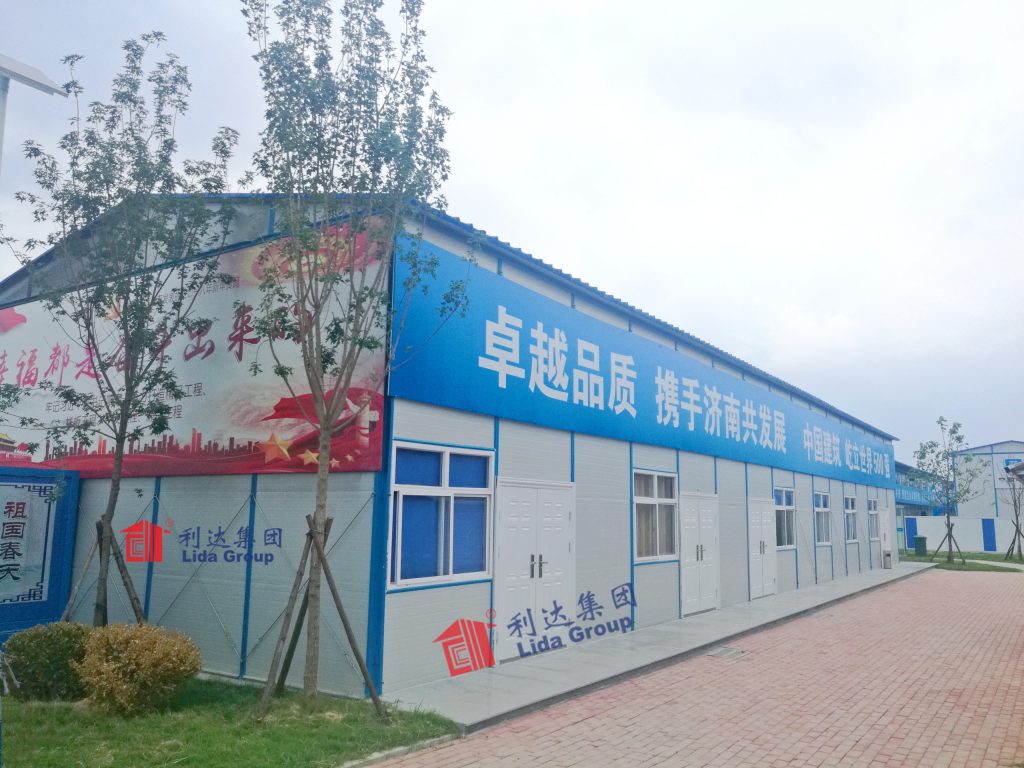
Poor Climate Control and Indoor Environment
Uninsulated walls and outdated heating/cooling systems make traditional accommodation unbearable in extreme weather. In cold climates, workers shiver through nights despite space heaters that drive up energy costs; in hot regions, sweltering interiors lead to heat exhaustion and disrupted sleep. Poor ventilation exacerbates the problem, trapping moisture, odors, and pollutants that cause respiratory issues.
Lack of Recreational and Social Spaces
Traditional sites rarely include dedicated areas for relaxation or socialization. Workers have nowhere to gather, watch TV, read, or exercise—activities that are critical for mental health in isolated environments. This isolation contributes to high rates of anxiety and depression, with studies showing that workers in amenity-poor accommodation have 25% higher turnover than those in comfortable housing.
Limited Connectivity and Convenience
In an increasingly connected world, traditional accommodation often lacks reliable internet access, leaving workers unable to communicate with family and friends. Basic conveniences like microwaves, refrigerators, or charging stations are scarce, forcing workers to rely on shared, overcrowded facilities.
These shortcomings are not just humanitarian issues—they have tangible business costs. High turnover increases recruitment and training expenses, while low productivity delays projects. Regulatory bodies worldwide are also cracking down, with fines for substandard accommodation reaching $100,000 or more in some regions. The industry needs a solution that prioritizes worker comfort without sacrificing mobility or durability—and Lida’s amenity-rich mobile buildings deliver exactly that.
Lida’s Amenity Integration: Designing for Worker Needs
Lida Group’s mobile buildings are engineered around a simple principle: amenities should address the full range of worker needs—physical comfort, hygiene, social connection, and convenience—while maintaining the mobility and durability that make mobile structures indispensable. Every amenity is thoughtfully selected and integrated into the modular design, ensuring it adds value without compromising functionality.
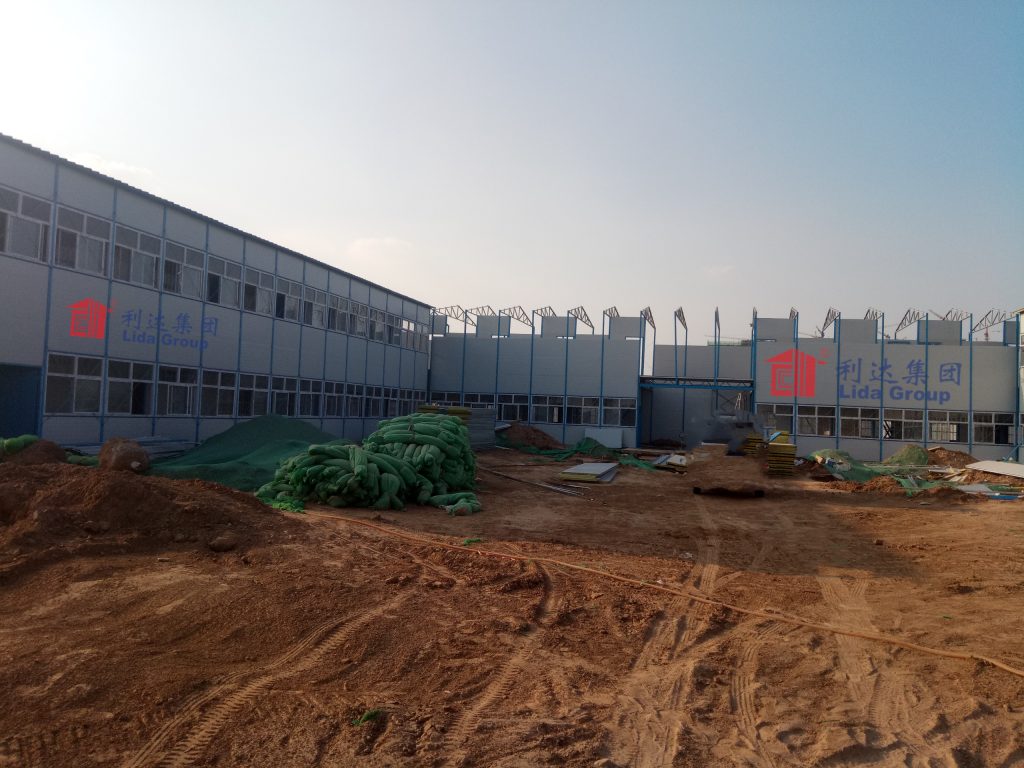
1. Climate Control and Indoor Comfort: Year-Round Livability
Lida recognizes that thermal comfort is the foundation of a good living environment, so its mobile buildings are equipped with advanced climate control systems and features that maintain a consistent, pleasant interior.
High-Efficiency HVAC Systems
Each mobile unit comes with a tailored heating, ventilation, and air conditioning (HVAC) system:
- Cold Climates: Energy-efficient diesel or electric heaters with programmable thermostats that maintain temperatures between 20–22°C. Heaters are quiet (below 45 decibels) to avoid disrupting sleep.
- Hot Climates: Split-system air conditioners with inverter technology that adjusts cooling output to maintain 23–25°C, reducing energy use by 30% compared to traditional AC units.
- Temperate Climates: Heat pumps that provide both heating and cooling, adapting to seasonal changes without requiring system replacements.
Superior Insulation and Ventilation
The building’s sandwich panel walls, roof, and floor use high-performance insulation cores (polyurethane foam, rock wool, or extruded polystyrene) that prevent heat transfer. Double-glazed windows with low-emissivity coatings further enhance insulation. Mechanical ventilation systems with HEPA filters circulate fresh air every 2 hours, removing pollutants, moisture, and odors—critical for indoor air quality.
Natural Light Optimization
Large windows and skylights (where applicable) bring in natural light, reducing reliance on artificial lighting and boosting mood. Window coverings (blinds or curtains) allow workers to control light levels for privacy or sleep.
2. Sanitation and Hygiene: Dignified, Convenient Facilities
Lida’s mobile buildings redefine on-site hygiene with amenities that prioritize cleanliness, privacy, and convenience.
Private and Semi-Private Bathrooms
Depending on the configuration, units feature either en-suite bathrooms (for single or double occupancy) or semi-private bathroom modules shared by 4–6 workers. Each bathroom includes:
- Hot-water showers with adjustable pressure and temperature controls.
- Low-flow toilets with dual-flush functionality to save water.
- Sinks with mirrors and storage cabinets for toiletries.
- Ventilation fans to prevent moisture buildup and mold.
Modern Laundry Facilities
Dedicated laundry modules are equipped with commercial-grade washers and dryers (front-loading for efficiency) that can handle heavy use. Machines are coin-operated or connected to a smart payment system, and folding tables and drying racks are provided. For larger complexes, Lida offers laundry service integration—partnering with local providers to pick up and deliver clean clothes.
Hygiene Stations
In high-traffic areas (e.g., near kitchens or entrances), hand-washing stations with touchless faucets and soap dispensers are installed to promote hygiene. Some units also include shoe-cleaning stations—critical for mining or construction sites where workers track in dirt and debris.
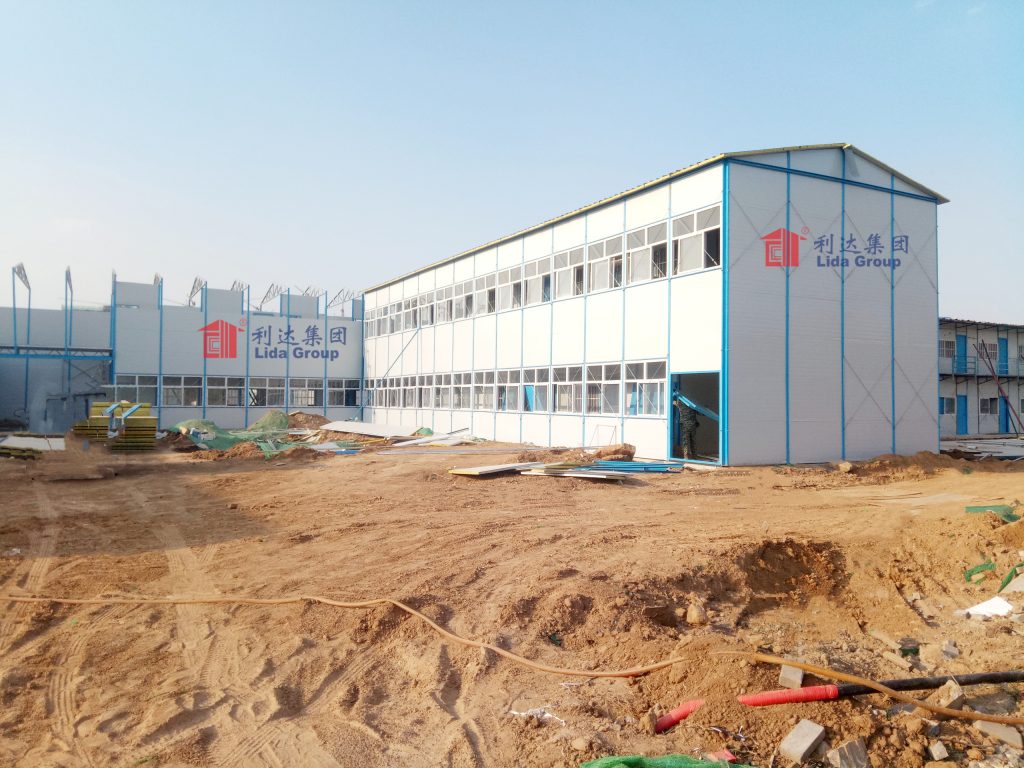
3. Kitchen and Dining: Home-Cooked Meals On-Site
Lida understands that good food is central to worker morale, so its mobile buildings include well-equipped kitchens and dining areas that make meal preparation and socializing easy.
Fully Fitted Kitchen Modules
Kitchen modules are designed for functionality and durability, featuring:
- Stainless steel countertops and cabinets (resistant to stains and corrosion).
- Four-burner stoves with ovens and range hoods.
- Large refrigerators/freezers (capacity 200–300 liters) for storing perishables.
- Microwaves, toasters, and kettles for quick meals.
- Dishwashers and double sinks for easy cleaning.
- Water filtration systems to ensure safe drinking water.
Comfortable Dining Areas
Adjacent to kitchens, dining areas include:
- Tables and chairs (seating 8–12 people per module).
- Overhead lighting and ceiling fans.
- Storage shelves for dishes and utensils.
- Optional flat-screen TVs for entertainment during meals.
4. Recreational and Social Spaces: Building Community
To combat isolation, Lida’s mobile building complexes include dedicated recreational modules that foster social connection and relaxation.
Multi-Purpose Recreational Rooms
These modules are flexible, with configurable furniture to suit different activities:
- Sofas, armchairs, and coffee tables for lounging.
- Flat-screen TVs with satellite or streaming access.
- Bookshelves, board games, and magazines.
- Foldable tables for card games or meetings.
Fitness Zones
For health-conscious workers, some complexes include small fitness modules equipped with:
- Treadmills, stationary bikes, and resistance bands.
- Yoga mats and foam rollers.
- Mirrors and water fountains.
Outdoor Spaces
When site conditions allow, Lida designs outdoor areas adjacent to mobile buildings, including:
- Picnic tables and benches.
- Umbrellas or awnings for shade.
- Fire pits (where permitted) for evening gatherings.
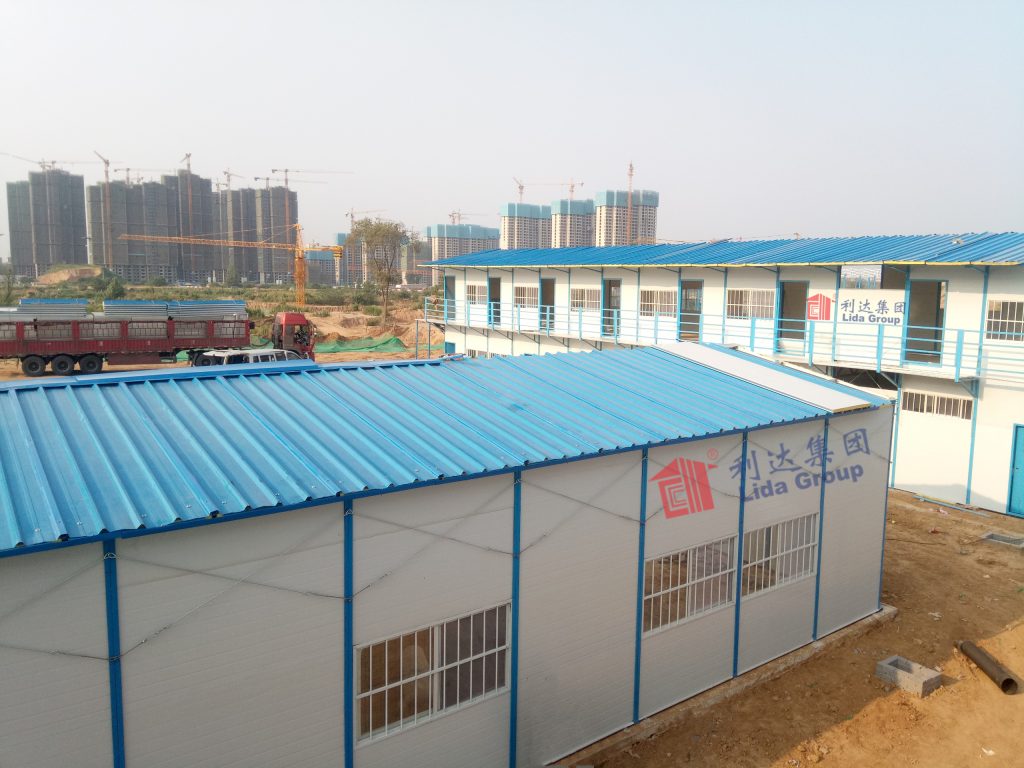
5. Connectivity and Convenience: Staying Connected, Staying Productive
Lida’s mobile buildings integrate modern conveniences that keep workers connected and make daily life easier.
Reliable Internet and Communication
Each unit is pre-wired for internet access, with options for:
- Satellite internet (for remote sites with no cellular coverage).
- Wi-Fi routers with extended range to cover the entire complex.
- Ethernet ports in bedrooms and common areas for stable connections.
Some units also include phone booths—quiet spaces for private calls with family or friends.
Charging Infrastructure
Charging stations are strategically placed throughout the building:
- USB ports and standard outlets in bedrooms (built into desks or nightstands).
- Shared charging stations in common areas for laptops, tools, and other devices.
- Solar-powered charging stations for outdoor use.
Storage Solutions
Adequate storage is built into every unit to reduce clutter:
- Wardrobes with hanging space and drawers in bedrooms.
- Lockers in entryways for work gear and personal items.
- Shelves and cabinets in kitchens, bathrooms, and common areas.
6. Accessibility and Inclusivity
Lida’s mobile buildings are designed to accommodate workers of all abilities, with amenities such as:
- Wheelchair ramps and wide doorways (90cm minimum) for accessibility.
- Grab bars in bathrooms and showers.
- Lowered countertops and sinks in kitchens and bathrooms.
- Visual and auditory smoke alarms for workers with hearing or vision impairments.
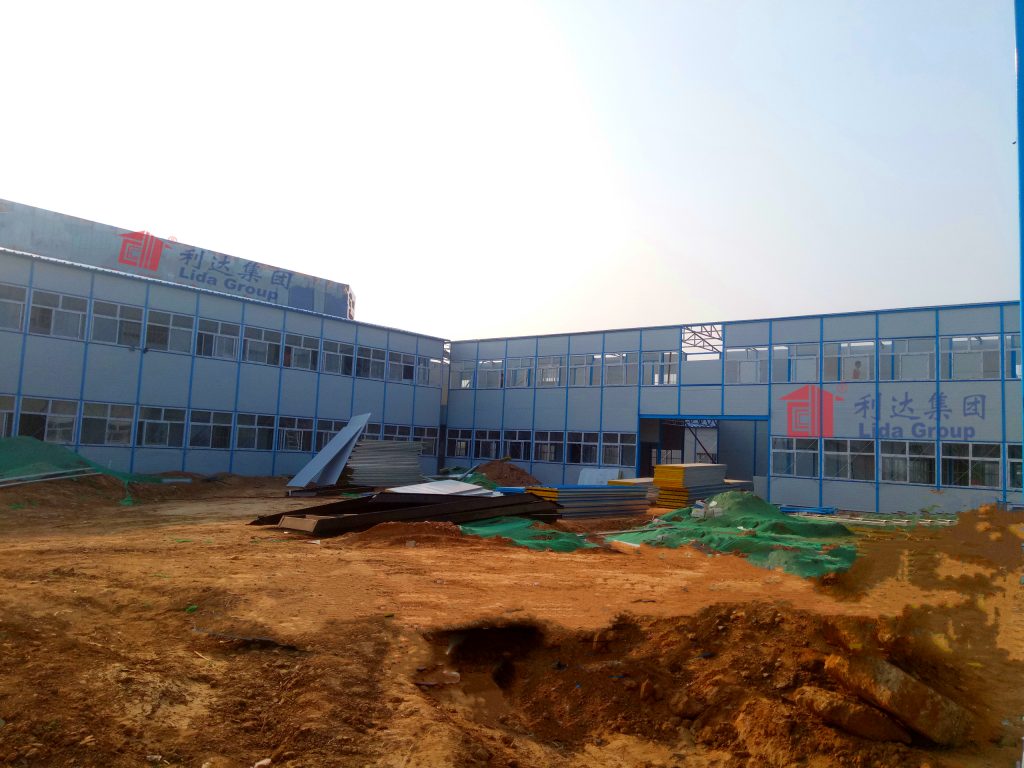
Technological Innovation: Enhancing Amenity Functionality
Lida Group leverages technology to make its amenities more efficient, user-friendly, and responsive to worker needs. These innovations transform basic amenities into smart, adaptive features that elevate comfort.
Smart Climate Control
Many of Lida’s mobile buildings include smart thermostats that can be controlled via a mobile app. Workers can adjust the temperature in their rooms remotely (e.g., before returning from a shift) or set schedules to match their sleep patterns. The system also uses occupancy sensors to turn off heating/cooling in unoccupied rooms, reducing energy waste.
IoT-Enabled Amenity Monitoring
Sensors are integrated into key amenities to monitor performance and usage:
- Laundry: Sensors notify workers via the app when their laundry cycle is complete, eliminating the need to check machines repeatedly.
- Kitchen: Refrigerator sensors alert staff when temperatures rise (preventing food spoilage) or when supplies are low.
- Bathrooms: Water flow sensors detect leaks early, reducing water waste and damage.
Data from these sensors is also used to optimize amenity placement and usage—for example, adding more washers if wait times are consistently long.
Digital Amenity Management
Lida’s proprietary app allows workers to:
- Reserve amenities (e.g., fitness modules, kitchen time slots) to avoid conflicts.
- Report maintenance issues (e.g., a broken shower or malfunctioning TV) with photos and descriptions.
- Provide feedback on amenities, helping Lida refine its designs for future projects.
Project managers can use the app to monitor amenity usage, track maintenance requests, and ensure facilities are being kept clean.
Renewable Energy Integration
To power amenities sustainably (and reduce operational costs), Lida’s mobile buildings can be equipped with solar panels on the roof. Solar energy is used to power lighting, charging stations, and small appliances, with excess energy stored in batteries for nighttime use. This is particularly valuable for remote sites with no access to the electrical grid.
Real-World Impact: How Amenities Improve Worker Outcomes
The effectiveness of Lida’s amenity-rich mobile buildings is proven in real-world projects, where companies have seen measurable improvements in worker morale, productivity, and retention.
Case Study 1: Construction Project in the United Kingdom
A large construction company was building a high-speed rail line in rural England, requiring accommodation for 200 workers for 2 years. The company had struggled with high turnover (30% annually) in previous projects due to poor accommodation. It chose Lida’s mobile building complex, which included en-suite bedrooms, a fully fitted kitchen, a recreational module with a TV and games, and laundry facilities.
Outcomes:
- Turnover: Dropped to 12%—a 60% reduction—with workers citing comfortable rooms and on-site amenities as key reasons for staying.
- Productivity: Increased by 15%, as workers reported better sleep and less stress.
- Cost Savings: The company saved $200,000 in recruitment and training costs due to lower turnover.
Workers also praised the internet connectivity, which allowed them to video-call family regularly.
Case Study 2: Mining Project in Chile
A mining company operating a copper mine in the Atacama Desert needed accommodation for 150 workers in extreme heat (up to 45°C). Traditional dormitories had high rates of heat exhaustion and worker complaints. Lida supplied a mobile complex with air-conditioned units, a shaded outdoor dining area, a fitness module, and cold-water drinking stations throughout the site.
Outcomes:
- Health Incidents: Heat-related illnesses dropped by 75% due to effective air conditioning and hydration stations.
- Morale: A worker survey found 90% satisfaction with accommodation, compared to 30% in the previous dormitories.
- Operational Efficiency: Reduced downtime due to illness, saving the company $150,000 over 1 year.
The mining company also noted that the recreational module helped build team cohesion, leading to fewer workplace conflicts.
Case Study 3: Renewable Energy Project in India
A wind farm developer needed temporary housing for 80 workers in Rajasthan, a remote region with limited local amenities. Lida’s mobile complex included a kitchen with local cooking equipment, a laundry module, a recreational room with satellite TV, and solar-powered charging stations.
Outcomes:
- Worker Satisfaction: 85% of workers reported feeling “at home” in the accommodation, thanks to familiar kitchen facilities and entertainment options.
- Sustainability: Solar power met 60% of the complex’s energy needs, reducing reliance on diesel generators and cutting operational costs by $500 per month.
- Community Building: The dining and recreational areas became hubs for socializing, with workers organizing weekly movie nights and sports activities.
The developer extended the contract with Lida for a second wind farm project, citing the positive impact of amenities on worker retention.
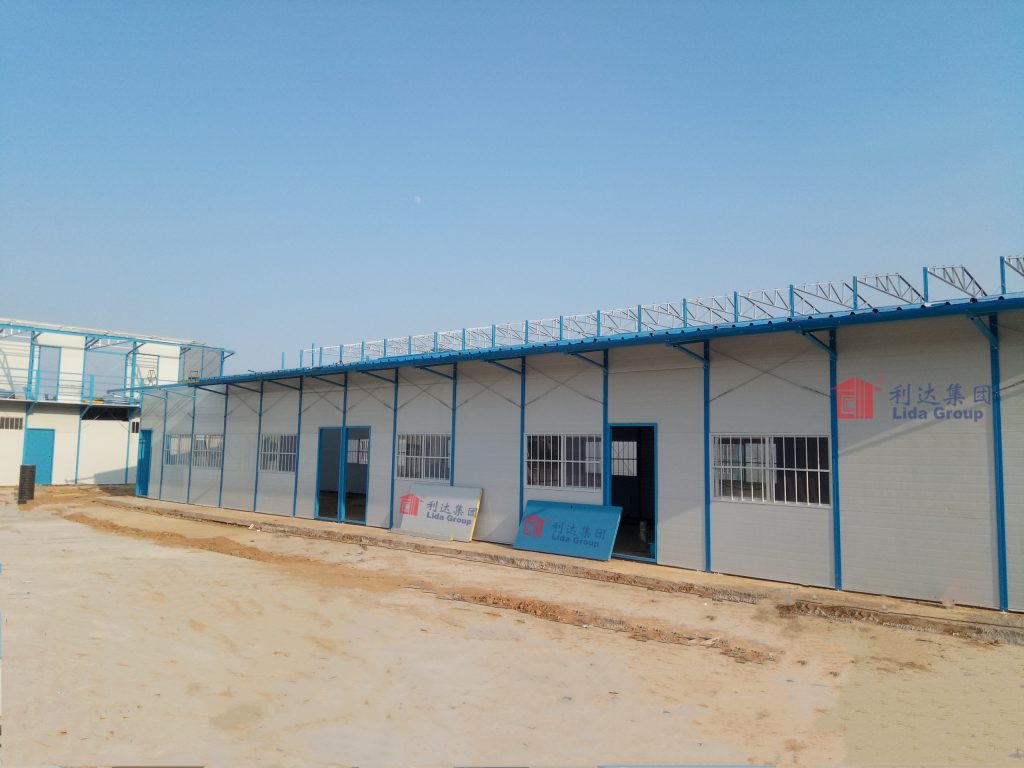
Competitive Advantage: Why Lida’s Amenity-Rich Designs Stand Out
In a market where mobile building providers often treat amenities as optional add-ons, Lida Group’s integrated approach creates a clear competitive edge. The company’s advantage lies in its ability to balance amenity quality with mobility, durability, and cost-effectiveness—something competitors struggle to match.
Worker-Centric Design vs. Generic Add-Ons
Unlike competitors who offer basic amenities as expensive upgrades, Lida integrates worker-centric features into the core design. Every amenity is tested for usability and relevance to on-site life, rather than being a generic “check-the-box” feature. For example, Lida’s kitchen modules include large refrigerators specifically sized for bulk food storage (common in remote sites), while competitors’ standard kitchenettes are too small for practical use.
Amenity Durability for Tough Environments
Lida’s amenities are engineered to withstand the rigors of construction, mining, and remote sites. Stainless steel kitchen surfaces resist scratches and corrosion; commercial-grade laundry machines handle heavy use; and HVAC systems are dust-proofed for desert or mining environments. Competitors’ amenities often use residential-grade components that break down quickly in harsh conditions, leading to maintenance headaches and worker frustration.
Scalability and Customization
Lida’s modular design allows amenities to be scaled up or down based on workforce size and site needs. A small team might share a kitchen and bathroom module, while a large workforce can have multiple recreational and hygiene modules. Lida also customizes amenities to local preferences—for example, adding tandoor ovens in Indian projects or barbecue grills in Australian sites. Competitors often offer limited customization, forcing clients to adapt to generic designs.
Cost-Effective Amenity Integration
Lida’s factory prefabrication process allows amenities to be installed during manufacturing, reducing on-site labor costs. By integrating amenities into the modular design, Lida avoids the need for expensive retrofits (common with competitors’ products). A 2024 industry analysis found that Lida’s amenity-rich mobile buildings cost 15% less than competitors’ basic units plus separate amenity upgrades.
Future of Amenity Integration: Evolving with Worker Expectations
Lida Group is not resting on its laurels; it is continuously innovating to integrate new amenities that reflect evolving worker expectations and technological advancements.
Wellness-Focused Amenities
As awareness of mental health grows, Lida is adding wellness amenities such as:
- Meditation Pods: Soundproof, climate-controlled spaces for quiet reflection.
- Telehealth Rooms: Private areas equipped with video conferencing for virtual doctor’s appointments.
- Wellness Apps: Integrated with the mobile app, offering guided meditation, fitness classes, and stress management resources.
Smart Home Integration
Future mobile buildings will feature full smart home integration, allowing workers to control lighting, climate, and
even small appliances (e.g., microwaves, coffee makers) via voice commands or a single mobile app. This integration will also include personalized user profiles, allowing each worker to save their preferred lighting brightness, temperature settings, and even entertainment preferences. For example, a worker could say, “Set my room to 22°C and turn on the reading light,” and the system would adjust accordingly—creating a more intuitive and personalized living experience.
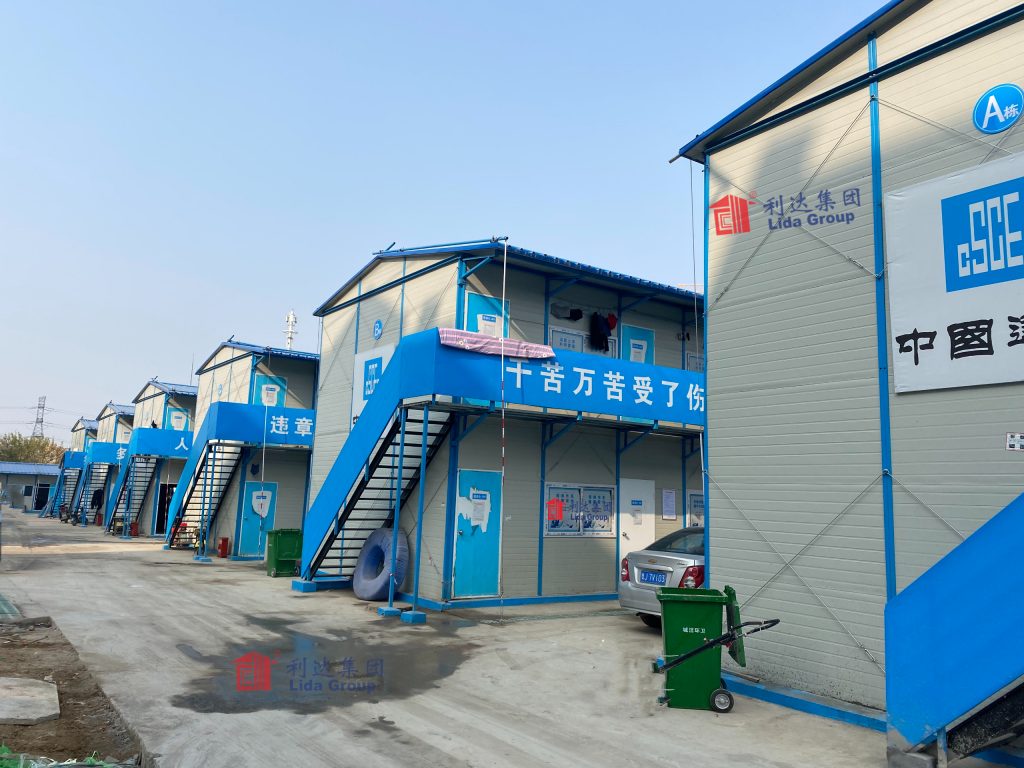
Personalization and Flexibility
Future Lida mobile buildings will emphasize greater personalization, allowing workers to tailor their living spaces to their preferences. This includes:
- Modular Furniture Systems: Interchangeable furniture pieces (e.g., convertible beds that fold into sofas, modular desks that adjust in height) that adapt to different uses—work, sleep, or relaxation.
- Customizable Interiors: Removable wall decals, interchangeable cushion covers, and adjustable lighting colors that let workers personalize the aesthetic of their rooms.
- Flexible Storage Solutions: Modular closets and drawers that can be reconfigured based on individual needs (e.g., more hanging space for clothing or additional shelves for tools).
This focus on personalization recognizes that workers are more comfortable in spaces that feel “their own,” even in temporary accommodation.
Sustainable Amenities
As global sustainability goals become more urgent, Lida is integrating eco-friendly amenities that reduce environmental impact while maintaining comfort:
- Composting Toilets: For remote sites with no sewage infrastructure, composting toilets convert waste into fertilizer, eliminating the need for septic systems.
- Rainwater Harvesting Systems: Integrated into the roof and plumbing, these systems collect and filter rainwater for use in showers, toilets, and laundry—reducing reliance on freshwater sources.
- Energy-Generating Fitness Equipment: Stationary bikes and treadmills that convert kinetic energy into electricity, powering lighting or charging stations in the recreational module.
These amenities not only lower operational costs for companies but also align with workers’ growing desire to support sustainable practices.
Virtual and Augmented Reality (VR/AR) Enhancements
Lida is exploring VR/AR technology to enhance social connection and entertainment in remote sites:
- VR Social Spaces: Virtual lounges where workers can “meet” with colleagues or family members in a 3D environment, simulating in-person interactions.
- AR Navigation: Augmented reality apps that overlay directions to amenities (e.g., “Walk 50 meters to the kitchen module”) or maintenance instructions (e.g., “Tap here to replace the showerhead”) on the physical environment.
- VR Entertainment: Virtual movie theaters or concert venues where workers can enjoy shared experiences, reducing feelings of isolation.
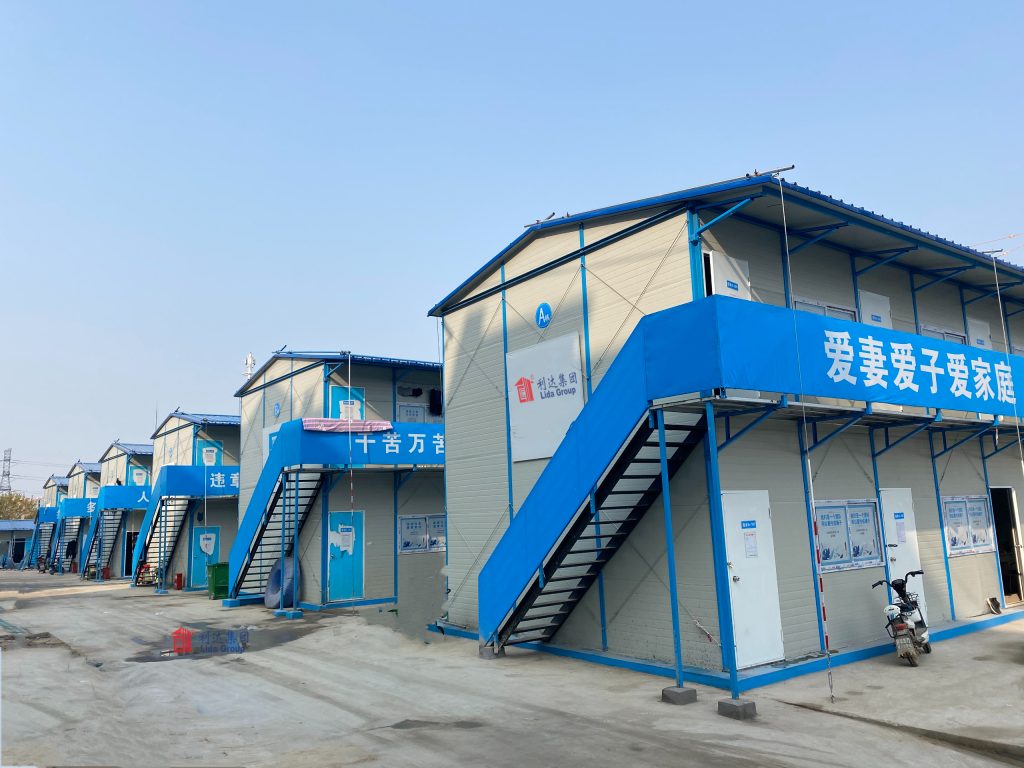
Conclusion
Lida Group has redefined worker accommodation by integrating modern amenities into its high-quality mobile building designs—proving that temporary housing does not have to be uncomfortable, impersonal, or functional at the expense of well-being. By focusing on worker needs—from thermal comfort and hygiene to social connection and connectivity—Lida has created spaces that enhance morale, productivity, and retention, delivering tangible business benefits for companies.
The company’s success stems from its holistic approach: amenities are not afterthoughts but core components of the design, engineered to be durable, scalable, and cost-effective. Unlike competitors who offer generic add-ons, Lida’s amenities are tailored to the unique challenges of remote and industrial sites—built to withstand harsh conditions while providing the comforts of modern living. Real-world case studies from the UK, Chile, and India demonstrate that these amenities translate to lower turnover, higher productivity, and significant cost savings.
Looking ahead, Lida’s commitment to innovation—wellness-focused amenities, smart home integration, sustainability, and VR/AR enhancements—ensures that its mobile buildings will continue to evolve with worker expectations. As the industry recognizes that worker comfort is not a luxury but an investment, Lida Group is poised to remain the leader, setting new standards for worker-centric mobile accommodation.
In a world where remote work sites are increasingly common, Lida’s amenity-rich mobile buildings are more than just housing—they are a testament to the idea that respecting worker well-being leads to better business outcomes. By prioritizing people in its design philosophy, Lida Group has not only elevated worker comfort but also transformed the future of temporary accommodation for the better.
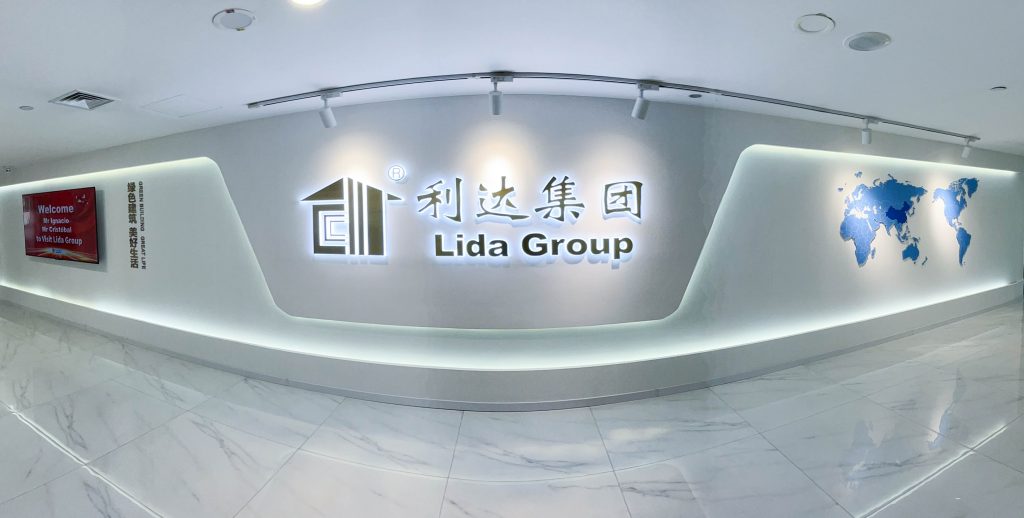
Related news
-
Transforming Remote Site Living: Lida Group's High-Quality Mobile Building Units Offer Unmatched Comfort and Durability.
2025-09-05 11:57:15
-
Engineered for Extreme Conditions: Lida Group's Prefab Worker's Dormitory Withstands Harsh Weather with Sandwich Panel Walls
2025-09-05 13:58:56
-
Cost-Effective Workforce Housing: Lida Group's Temporary Sandwich Panel House Cuts Construction Time and Operational Budgets
2025-09-05 17:33:02
contact us
- Tel: +86-532-88966982
- Whatsapp: +86-13793209022
- E-mail: sales@lidajituan.com


